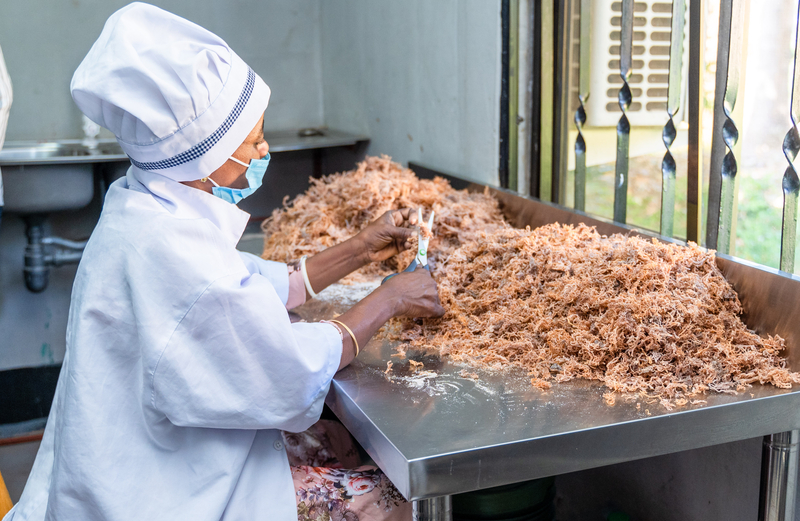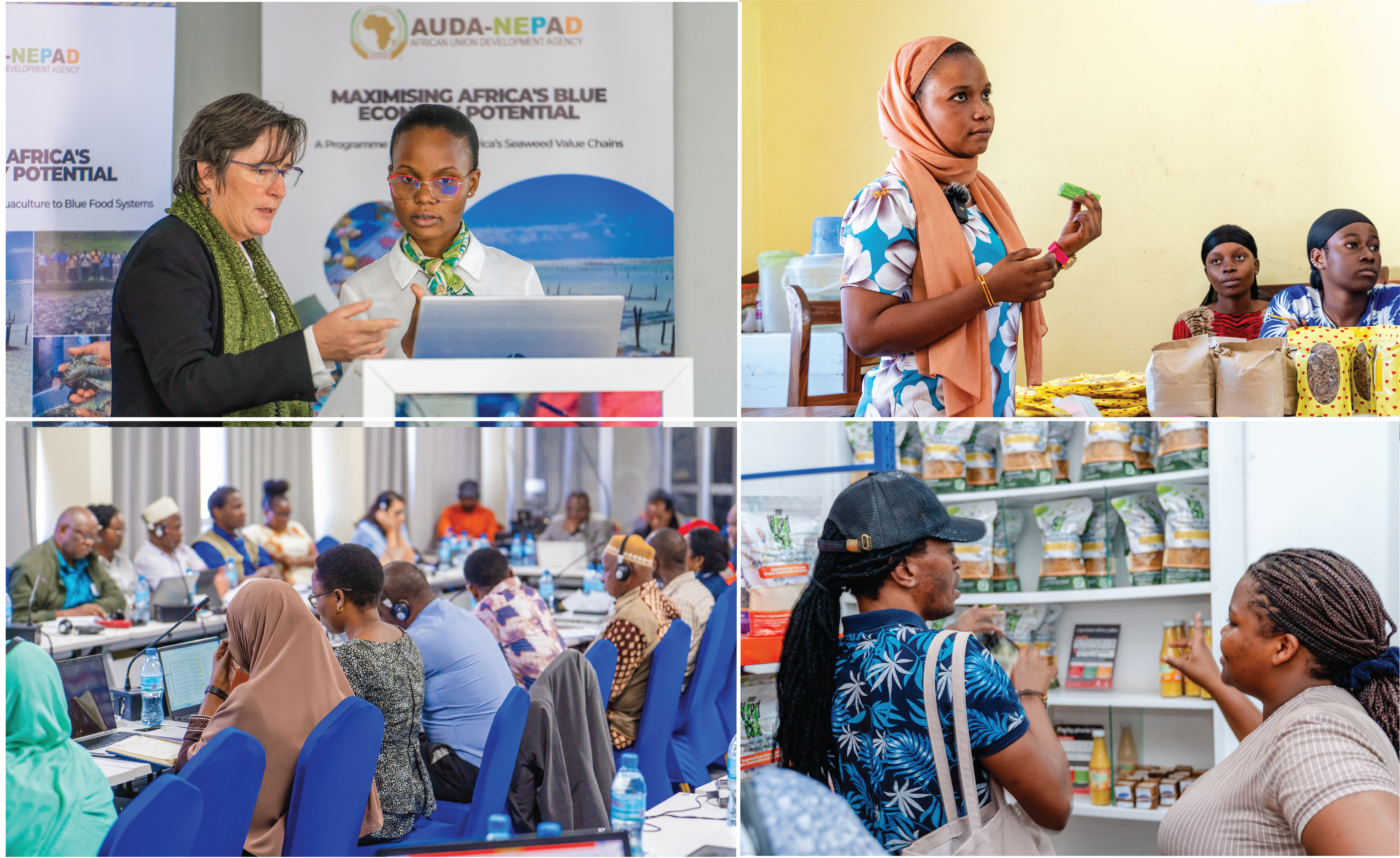Maximising Africa's Blue Economy Potential - A Programme to Strengthen Africa’s Seaweed Value Chains

“Seaweed farming is one of the key industries of the Blue Economy in Tanzania in the context of aquaculture…Seaweed farming is a priority of the government to enhance resilience and prosperity of coastal communities, and particularly of the high numbers of women that are engaged in the sector.”
The importance of seaweed for Tanzania was highlighted by the Permanent Secretary Ministry of Livestock And Fisheries, Mainland Tanzania, Professor Riziki S. Shemdoe, at the opening of the workshop on Maximising Africa's Blue Economy Potential - A Programme to Strengthen Africa’s Seaweed Value Chains.
The capacity building event held in Dar-es-Salaam, Tanzania, from 28-31 May 2024, was organized by AUDA-NEPAD and hosted by the Ministry of Livestock and Fisheries of the United Republic of Tanzania. Additional partners of the workshop included the Ministry of Blue Economy and Fisheries - Zanzibar, the Zanzibar Seaweed Cluster Initiative, FAO, AU-IBAR, FAO, and WWF, the World Bank. The workshop was financially supported by the Government of Colombia through the Presidential Agency for International Cooperation (APC-Colombia) under the auspices of the South-South Co-operation partnership.
Seaweeds are highly productive marine resources that hold vast potential for contributing to development aspirations in Africa, and particularly to the development of Africa’s Blue Economy. Globally, seaweed is one of the fastest growing food production sectors in the world today. They are also used in a wide variety of non-food products, supporting livelihoods and economic growth for some of the most vulnerable populations. Seaweeds also play a significant role in climate change adaptation, sequestering carbon, reducing ocean acidification and eutrophication, and providing critical habitats for commercially important fish stocks. Hence seaweed aquaculture’s direct ecological benefits to the environment supports the emerging concept of “restorative aquaculture”.
Africa has over the years demonstrated considerable potential for seaweed production in several countries. In total, Africa produced just over 200,000 metric tonnes of seaweed, with the bulk (over 90 percent) coming from Tanzania and Zanzibar. About 11 other African countries are currently involved in seaweed farming and harvesting, commercially or experimentally, for export or domestic utilisation. Recognizing the potential of Africa’s seaweed value chains to contribute to blue economy development, livelihoods and economic growth, AUDA-NEPAD has worked since 2021 to engage with various key stakeholders and partners to strengthen the community of practice to identify and address priorities for development, and to raise awareness to realise the potential of the sector.
The experience sharing, training and planning workshop was organized as a response to the priorities identified during an initial stakeholder engagement event organized by AUDA-NEPAD in collaboration with the Zanzibar Seaweed Cluster Initiative in November 2021 and the Government of Zanzibar. The call was made then for a strengthened community of practice, improved standards and conformity procedures and training in value addition. AUDA-NEPAD has been working since then to engage with key stakeholders and partners to identify and address priorities, mobilize resources and to raise awareness to realize the potential of the sector.
The overall objective of the workshop was to identify ways to grow and strengthen Africa’s seaweed value chains and further support the coordination of efforts and stakeholders involved in the industry by strengthening the community of practice and facilitating dialogue among key stakeholders on improved seaweed production, processing and marketing, while moving towards women’s empowerment.
Participants included representatives from the Government of Colombia, AU agencies, RECs, and AU Member States (Tanzania, Zanzibar, Kenya, Somalia, Madagascar, Tunisia and Eritrea). Leaders from seaweed production and processing initiatives, researchers, the private sector and non-state actors working in the seaweed sector (from Tanzania, Zanzibar, Mozambique and Korea) also contributed to the workshop, both physically and virtually.

The workshop provided an interactive and brainstorming experience for a diverse array of participants from the African and global seaweed value chain sectors. Sessions were conducted through presentations, deliberations, experience sharing and planning and networking interactions. Best practices and approaches on gender mainstreaming and transformative approaches in the aquaculture sector were shared and opportunities for their application to the seaweed sector were showcased. Technical presentations shared updates on current initiatives, challenges and innovations in the seaweed industry both in Africa and Korea. The event also provided a useful training platform for value chain actors and key officials on biotechnology advances, voluntary sustainability standards, improved quality infrastructure, and trade in seaweed. A field visit to two seaweed production and processing sites in Bagamoyo, served to give participants first-hand insights on seaweed farming, processing, value addition and trade.
AUDA-NEPAD is leveraging on the key outcomes from the workshop to support a sustainable way forward for coordinated and evidence-based action to drive greater awareness and investment into growing and scaling Africa’s seaweed value chains.
